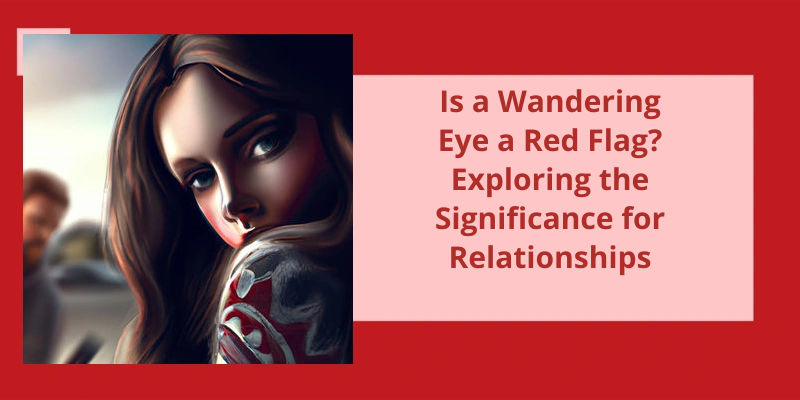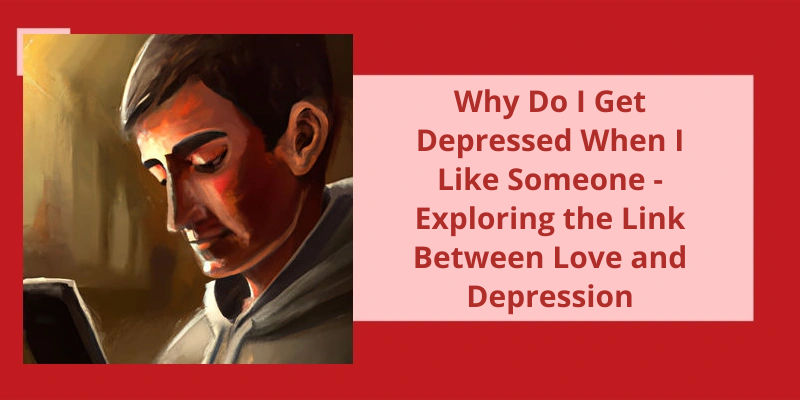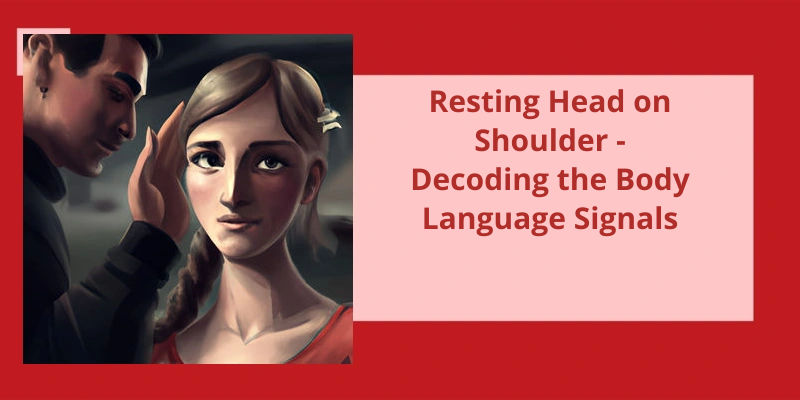When it comes to relationships, trust is a fundamental aspect that can make or break the bond between two individuals. While it's natural to feel attracted to someone other than your partner, the real test lies in whether you act on it or not. Infidelity is a sensitive issue that can take a toll on both parties involved, and the consequences can be devastating. While some signs are more apparent than others, one red flag that often goes unnoticed is a wandering eye. Those who exhibit this behavior tend to seek out the thrill of the chase and prioritize variety over commitment. In this article, we'll explore the indicators of infidelity, discuss relational red flags, and dive into the question on many people's minds – is a wandering eye a red flag?
What Could Wandering Eyes Mean the Person Is?
However, when used in a figurative sense, a wandering eye can refer to a persons tendency to look at other people in a flirtatious or lustful manner, potentially indicating an unfaithful or non-committal character. For others, it may indicate a deeper psychological issue, such as low self-esteem, a lack of self-control, or a compulsive need for attention or validation.
They may enjoy people-watching or find themselves drawn to new faces and experiences. In these cases, their behavior may not necessarily indicate a lack of commitment or a desire to cheat on their partner. However, when a wandering eye becomes a habitual or compulsive behavior, it could be a sign of something deeper.
These individuals may struggle to form genuine connections with others and may use flirting and seduction as a means of manipulation or control. They may also have an inflated sense of self-importance and may be unwilling to give up their wandering ways even when it threatens their relationship.
It may be a harmless quirk, a sign of deeper emotional issues, or a symptom of a personality disorder. In any case, it’s important for individuals to be honest and open with their partners about their tendencies and to seek help if they’re experiencing significant distress or difficulties in their relationships.
Managing Jealousy and Insecurity in Relationships With a Partner Who Has a Wandering Eye.
- Understand that jealousy is a natural emotion
- Communicate openly with your partner about your feelings
- Find healthy ways to cope with your jealousy, such as exercise or therapy
- Trust your partner until given a reason not to
- Discuss boundaries with your partner regarding flirting or interacting with others
- Avoid snooping or invading your partner’s privacy
- Work on building your self-esteem and confidence
- Foster a strong and secure connection with your partner
- Remember that no one person can fulfill all of your needs
When it comes to dating, there are many signals that people may give off that can affect the course of a relationship. Some of these signals, commonly known as “red flags”, can indicate an issue that may be too problematic to ignore. However, not all signals are necessarily deal breakers. Sometimes, it’s important to pay attention to “yellow flags”. These flags signal caution and suggest that one should proceed with care. Understanding the difference between red and yellow flags can help in making informed decisions about how to handle dating situations.
What Is the Opposite of a Red Flag Dating?
When it comes to dating, it can be easy to dismiss small concerns in the name of love. However, it’s important to understand that not all concerns are created equal. Red flags are serious warning signs that indicate a potential partner may not be a good fit. These red flags can include things like controlling behavior, explosive anger, or dishonesty. If you see a red flag while dating, it’s important to take it seriously and consider if the relationship is worth pursuing.
On the other hand, yellow flags are less severe and should be viewed as cautionary. These yellow flags could include things like lack of communication, being too busy to make time for a relationship, or a history of short-term relationships. These aren’t necessarily deal breakers and may be worth addressing with your partner before ending the relationship. However, they can indicate potential challenges to the relationship and require careful consideration.
By paying attention to these warning signs and taking the time to address concerns early on, you can build stronger, healthier relationships with your partners.
How to Address Yellow Flags in a Relationship Without Coming Off as Accusatory or Judgmental
- Use “I” statements instead of “you” statements
- Listen actively and show empathy
- Avoid making assumptions or jumping to conclusions
- Ask open-ended questions to encourage dialogue
- Focus on specific behaviors or actions, not the person
- Be honest and direct, but respectful
- Acknowledge your own role in the relationship
- Offer solutions or suggestions for improvement
- Avoid blaming or shaming language
- Express appreciation and gratitude for positive aspects of the relationship
Source: 13 Red Flags in Relationships – Verywell Mind
Conclusion
In conclusion, a wandering eye can be a red flag for potential infidelity, as it may indicate a desire for variety and constant conquest in the dating scene. While not an absolute indicator of unfaithfulness, it’s important to take note of any relational red flags and address them with honesty and communication in any relationship. Building trust and understanding is key to a strong and healthy relationship, and addressing any potential issues early on can prevent future heartache and mistrust. Ultimately, it’s up to each individual to decide what they’re comfortable with in their relationships, but being aware of the potential warning signs can be helpful in making informed decisions.






